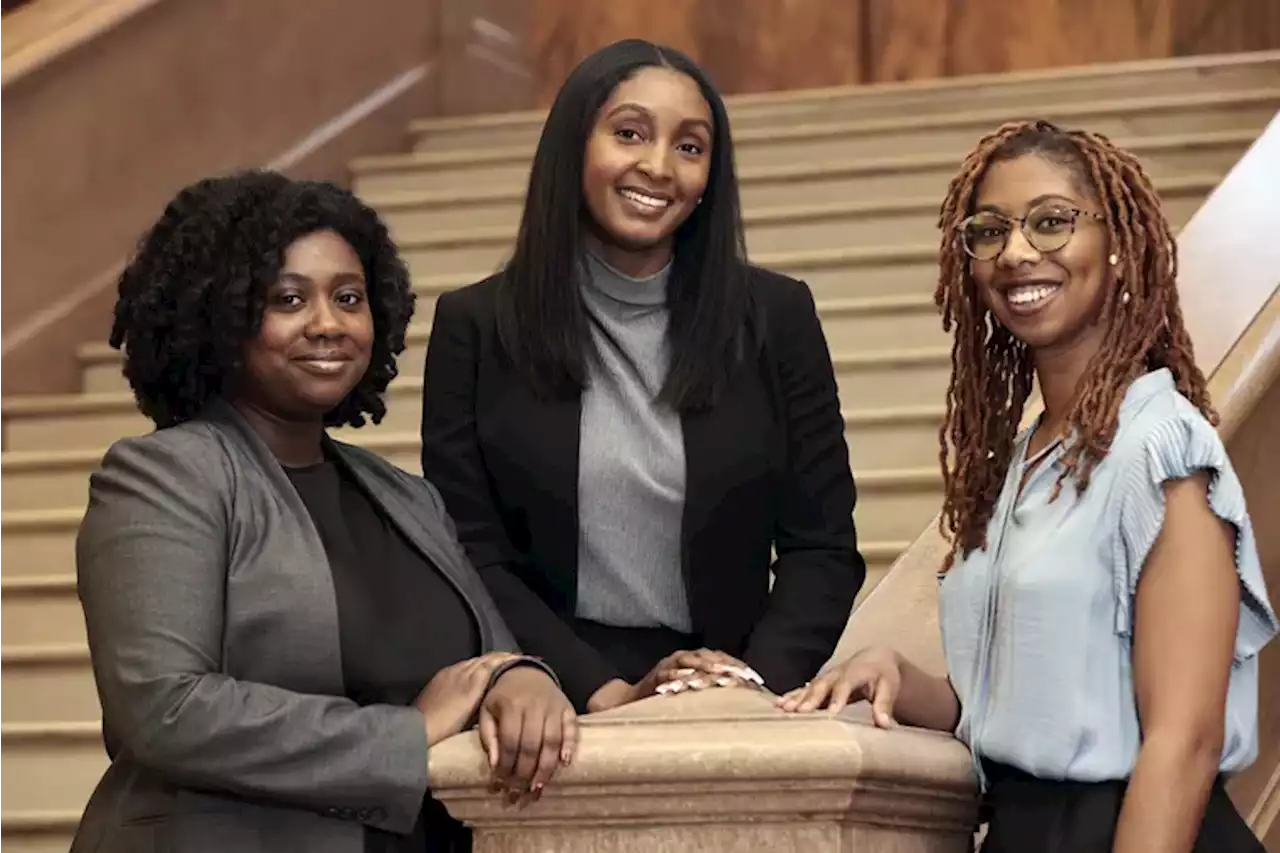For millions of Americans who took out loans to pay for college, the past two years have offered a chance to live without the burden of their education debt.
The payment moratorium has touched the lives of many Americans, but it has perhaps meant the most to the group who stood the most to gain from it — Black women.
The payment moratorium has touched the lives of many Americans, but it has perhaps meant the most to the group who stood the most to gain from it - Black women, like Jackson, who shoulder a disproportionate share of the $1.7 trillion student debt burden. Everything changed when the pandemic forced people to shelter in place. Omenyi decided to move in with her parents in Ellicott City, Md., when her job in North Carolina went remote and her lease was up. Sharing a house with mom and dad meant she could pocket the money that would have gone to rent, and couple the savings with the money that would have gone to repaying her student loans.
The pandemic struck a few months after Brown, 34, earned a PhD in college student affairs administration from the University of Georgia. Federal student loan borrowers typically have six months before they begin repaying their debt. But the pandemic payment freeze turned that grace period into a two-year stretch for Brown, who owes roughly $31,000.
Still, a National Association of Realtors study found homeownership rates for Black Americans, at 43.4% in 2020, lagged other racial groups and was actually lower than the prior decade. Researchers attribute the gap, in part, to a decline in housing affordability and hefty student debt held by Black Americans making it difficult to save.
Add to those challenges the propensity for providing financial support to extended family, and the economic promise of college credentials can wane for Black women. Army veteran Alphi Coleman, 38, can relate. The stress of working unfulfilling jobs to get ahead was wearing her down before the pandemic.
"I don't want to step back into the corporate nine-to-five and try to fit into that culture," Coleman said. "I would love to . . . create enough financial security to thrive."The $152,000 in student debt that Crystal Elliott-O'Connor, 53, owes had made it nearly impossible to set aside any money. The suspension of payments changed that.
Österreich Neuesten Nachrichten, Österreich Schlagzeilen
Similar News:Sie können auch ähnliche Nachrichten wie diese lesen, die wir aus anderen Nachrichtenquellen gesammelt haben.
 Black women now lead three of Penn’s prestigious law journals. They talk about what other change they’d like to see.The women are among 7.2% of the 824-member law school student body who identify as Black, although a similar percentage reported they are two or more races.
Black women now lead three of Penn’s prestigious law journals. They talk about what other change they’d like to see.The women are among 7.2% of the 824-member law school student body who identify as Black, although a similar percentage reported they are two or more races.
Weiterlesen »
 CDC report: Black women die from maternal causes at rate nearly 3 times higher than othersThe number of women who are dying from and during childbirth is rising nationwide with mortality rates disproportionately higher for Black and Hispanic women.
CDC report: Black women die from maternal causes at rate nearly 3 times higher than othersThe number of women who are dying from and during childbirth is rising nationwide with mortality rates disproportionately higher for Black and Hispanic women.
Weiterlesen »
 Australian Convenience Store OTR to Accept Crypto Payments (Report)OTR will reportedly become Australia's largest bricks-and-mortar retailer to accept digital assets as a means of payment.
Australian Convenience Store OTR to Accept Crypto Payments (Report)OTR will reportedly become Australia's largest bricks-and-mortar retailer to accept digital assets as a means of payment.
Weiterlesen »
 Some Denver Public Schools Students Feel ‘Unsafe,’ ‘Targeted’ By School Security Guards, Amid Increase In Violent Crimes In High SchoolsThe elimination was meant to help reduce the “school to prison pipeline,” but some students say they still feel unsafe at school.
Some Denver Public Schools Students Feel ‘Unsafe,’ ‘Targeted’ By School Security Guards, Amid Increase In Violent Crimes In High SchoolsThe elimination was meant to help reduce the “school to prison pipeline,” but some students say they still feel unsafe at school.
Weiterlesen »
 Chronic absenteeism in NYC public schools hits alarming 40%With 938,000 students enrolled in NYC’s schools, that means some 375,000 kids are missing too much school.
Chronic absenteeism in NYC public schools hits alarming 40%With 938,000 students enrolled in NYC’s schools, that means some 375,000 kids are missing too much school.
Weiterlesen »
